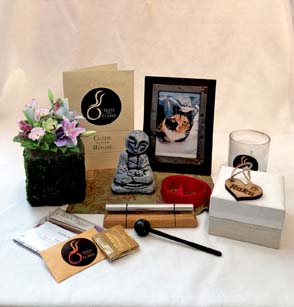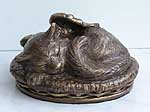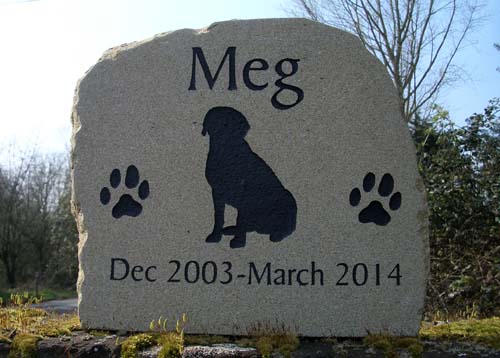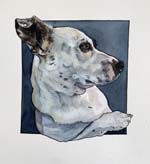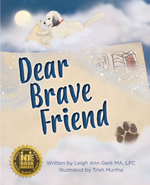See Moira Allen's recent video interview on pet loss!
Two Questions About Loss
by Moira Anderson Allen, M.Ed.
I'd like to adopt a new cat someday, but feel disloyal. What should I do?
Q: I was wondering if you can give me some advice. I'm not ready yet to adopt more cats, but will at some point. Part of my hesitation is that I am afraid of being "disloyal" to my two dear departed cats. I know this feeling is normal, but what can I do about it? Any advice or info you could give me would be much appreciated!
A: The feeling of disloyalty is very common, very normal. I think one reason for this feeling is that, in a way, your grief is the only "emotional" attachment you have left with your cats. You can't express love for them in any other way. Letting go of the grief (i.e., accepting that you're ready for another cat) seems like letting go of the cats themselves. You may feel as if you're letting them slip away by letting go, that you're going to stop remembering them and worst of all, stop loving them. It isn't a great connection, but it is a connection.
I think you will find, in time, that your need for a real, live companion to love and cuddle will begin to outweigh the emotional need for the grief connection. It takes time; it's not unusual for this to take several months. At the same time, you might want to start "looking" -- with the realization that you don't plan to do more than that. Or, consider volunteering at a humane association and doing some "cuddle service" with cats that need attention and socialization. (I'd recommend a "no kill" association if you have one in the area.) It's a way to ease back into a relationship with a new cat without doing so all at once.
I've always tended to get new cats before I felt fully "ready," usually because the surviving cat has seemed so lonely and depressed. But it has always worked out; even if I go through a few weeks with a wee bit of resentment and "you're not the cat I want" feelings, love blooms and the new cat becomes every bit as important and beloved as the previous cat was.
When you do feel ready to adopt, keep in mind that you may well feel that the new cat is still not be the cat you "want" at first. But it will very soon become that cat.
I keep thinking I should have known, I should have done more...
Q: I recently lost two dogs. One died of complications from cancer, and less than a month later, the other died as well. We knew that the first was going to die, and were able to make him as comfortable as possible. I was going to put him down, but he saved me that agony. But I had no warning the other was going to go. We took her on a family outing, and the next day she was stiff. She had arthritis, so I didn't think this was unusual until I noticed a big lump on her leg. By the time I got her to the vet, it was too late. I'm not sure what happened. The vet thinks it could have been a snake or spider bite, or that it could have been a cancerous tumor that burst and released histamines into her body. Whatever it was, it had affected all her organs; her fever reached 106.2, and they resuscitated her several times before I made the decision to let her go the next time her heart stopped. Needless to say it was quite a shock to me to lose another pet so quickly. I also feel more guilt, because I had no idea she was going to die and didn't get the chance to do the things for her that I'd done for the other dog. I miss them both terribly; I feel the void everywhere. I find it hard to focus or get organized. The dogs were a constant in my life through many hard times and changes, and it's hard for me to think about facing challenges without them.
A: To have two losses one right after another would be horribly traumatic to anyone; it's no surprise that you're finding it tough to cope. You had been prepared to cope with one loss (as much as anyone can be prepared) -- and quite probably you expected to have the comfort of your remaining dog to help you through that anticipated loss. Suddenly, you have had to deal with twice the pain.
It sounds as if you're feeling guilty because you never "saw" any signs of a problem with the second dog. You've probably thinking that you should have noticed, you should have had a warning, you should have been able to take steps in advance to prevent this from happening. You're probably blaming yourself for not being "observant" enough to protect her.
This is a very common reaction. It stems from the fact that we make ourselves completely responsible for our pets. Consequently, when they die -- even when we are in no way to "blame" -- we still feel that responsibility. More accurately, we feel that we have somehow "failed" in our responsibility, because if we'd done everything right, our pets would be alive. Since our goal is to keep our pets happy and healthy, death feels like the worst possible "failure" of that responsibility.
In reality, it is not a failure. One thing to remember is that animals respond very differently to sickness and pain than humans. To begin with, if no real pain is involved (but perhaps just a diminishment of function), an animal will hardly "notice" that it is ill or impaired. It will find ways to compensate that may be so subtle that you'd never notice. Animals don't think, "Hey, there is something wrong with me." They simply adapt to their circumstances and conditions -- which means, to the annoyance of us owners, that they don't come and "tell" us when something is wrong.
Even when an animal is in pain, however, its first instinct is generally to conceal the fact and to appear as "normal" as possible. This is a survival trait, from the days when an animal's life depended on appearing healthy. To be "sick" or injured was to become a target for predators, so even our domestic dogs and cats still instinctively "cover up" problems rather than reveal them.
So it often isn't a matter of being more observant or perceptive. There may have been nothing for you to see (and if, in fact, the dog's death was due to a toxic bite rather than a cancer, there would not have been ANY advance warning). In reality, there's probably nothing for you to feel guilty for.
However, as you've already discovered, feelings and reality don't necessarily converge. You may know, intellectually, that you are not to blame and that you did everything you could, but you still feel guilty. This is normal. What you feel may not be "accurate" -- but that doesn't prevent you from feeling it. You may also find that you can't argue those feelings away through logical reasoning.
The only solution at this point is to accept that you have these feelings -- NOT that they are an indication of reality, but simply that they are there. Don't let those feelings convince you that you ought to punish yourself, etc. -- but accept that they are a normal response to the loss of someone you loved and accepted responsibility for. In time, those feelings will get better. How long? Well, I still had crying spells for my cat up to a year after her loss. But the day-to-day sense of anguish does get better.
One way to think of grief is to compare it to a physical injury. If you broke your leg, you'd have one period of really extreme pain. But even after the leg is set and is healing, you're still going to suffer. It's going to hurt. You don't get up the next day and feel perfect. But you DO feel a little better each day -- just a little better than the day before. Healing may seem to take forever, but the key is to look at whether you feel just a tiny bit better today than you did yesterday. When you realize that is the case, you'll realize that you will feel even a tiny bit more healed tomorrow. And the next day, and so on. There may be set-backs, but healing does come.
Copyright © 2001 by Moira Allen. This article originally appeared on Allpets.com.
When a pet dies, you want help... fast!
You'll find it in Moira Allen's Coping with Sorrow on the Loss of Your Pet. In a book filled with comfort, compassion and support, you'll find the tools and tips you need to:
 |
- Understand the feelings you're going through -- and find ways to ease the pain
- "Say good-bye" with memorials, tributes and other coping strategies
- Help your children and other family members deal with their grief
- Deal with people who "just don't understand"
- Help surviving pets cope with the loss of a missing companion
- Come to terms with the guilt we so often feel when a pet dies
- Handle the agonizing decision of euthanasia
- Choose the best and most comforting "final resting place" for your pet
- Determine when and how to bring a new companion into your home (how soon is too soon?)
- Improve your chances of recovering a lost or stolen pet
- Help a friend cope with loss
|
Coping with Sorrow on the Loss of Your Pet celebrates over 30 years in print -
our expanded Third Edition is available from Amazon.com in Print and Kindle editions!*
*(Please note that these are affiliate links. As an Amazon Associate I earn from qualifying purchases.)
Quantity discounts are also available; please visit our Quantity Orders page for details.
|

 HOME ·
HANDOUTS ·
Links ·
Pet Loss Hotlines ·
List Your Organization ·
List Your Product
HOME ·
HANDOUTS ·
Links ·
Pet Loss Hotlines ·
List Your Organization ·
List Your Product